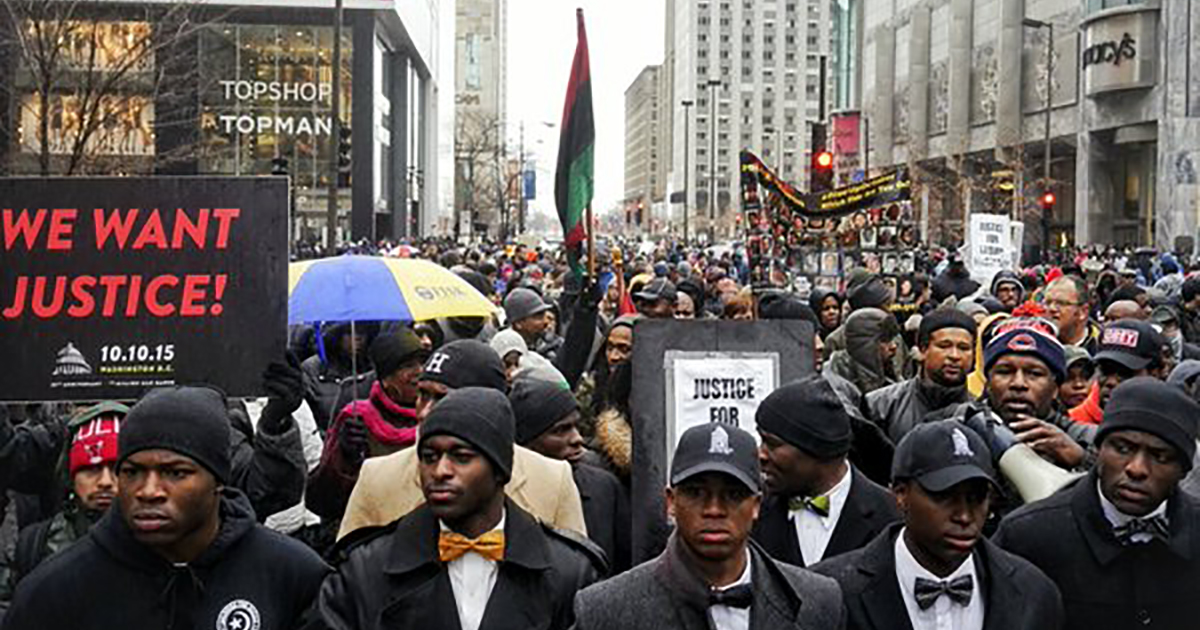To learn more about this topic, visit AL.Law
Via America’s Lawyer: Mike Papantonio and Attorney Kim Adams talk about how there are now more than 2,000 dicamba-related injury investigations by various state Departments of Agriculture. Dicamba is a Monsanto weedkiller that appears to be giving the company the same legal problems as its other herbicide, Roundup.
Transcript:
Mike Papantonio:
Agrochemical giant Monsanto’s been having a very bad year, to say the least, but there’s no need to feel sorry for the company. All their problems have been caused by their own greed, their own arrogance, and their own negligence.
The year started off with lawsuits being filed against Monsanto for covering up the dangers associated with their blockbuster weed killer Roundup. Scientific studies have linked Roundup to various forms of cancer, neurological disorders, and respiratory disease. Based on what we’ve seen from the company’s own documents, Monsanto absolutely understood the dangers of Roundup, but they continued to downplay the risk in order to sell their product by the barrel to farmers and ordinary consumers around the world.
But now that the heat is up on the company, they’ve begun marketing a different weed killer to people who might be concerned that Roundup could permanently endanger their health. That weed killer is called Dicamba. Dicamba isn’t new. It was originally patented in 1967, and it was used widely until stronger weed killers like Roundup entered the market, and the market share for Dicamba died off.
But with Roundup gaining public attention for all of the bad reasons, Dicamba is quickly becoming the go to herbicide for people who aren’t willing to risk their health by using Roundup. This doesn’t mean that Dicamba is worry-free. In fact, some experts are now warning that Dicamba may prove to be more toxic than Roundup as the studies continue. The main problem is that as of right now, the only long-term studies we have, have been conducted by Monsanto, and we know what that means.
Dicamba’s main ingredient is benzoic acid, so when sensitive areas of the body are exposed, like lungs and nasal cavities, the eyes … severely burn. All types of burning sensations can overcome the human body. Dicamba is considered to be moderately toxic by ingestion and slightly toxic by inhalation or dermal exposure. Symptoms of poisoning include loss of appetite, vomiting, muscle weakness, slowed heartbeat, and even respiratory problems that show up as shortness of breath, or central nervous system effects in muscle spasm.
In addition to these symptoms, inhalation can cause irritation of the linings of the nasal passages and the lungs. If the chemical gets into the eyes, it can cause permanent damage leading to partial or total loss of vision. The tests in some lab animals have revealed damage to reproductive organs, low birth weight, and even loss of pregnancy.
The more we learn about Dicamba, the more worrisome this product has become.
Mike Papantonio:
For more on this, I’m joined by attorney Kim Adams. Kim, first of all, it’s pretty obvious. Monsanto is now pushing Dicamba because Roundup is getting killed, and justifiably so, getting killed in the courtrooms, getting killed in the media. We now see the EPA was all part of it. It’s an ugly, ugly story about Roundup. This is a dangerous product, so Dicamba is there. What’s your take?
Kim Adams:
Dicamba, two-fold. I think that Monsanto has to do something to fix the Roundup problem. Farmers can no longer rely on Roundup to have their crops grow, so they’re losing crops to all of these Roundup-resistant super weeds. They also have, as you mentioned already, the cancer risk. It took 30 years for Monsanto to come around and say, or be called out on the fact that now we know that Roundup and Glyphosate, the chemical in Roundup, can cause cancer.
Mike Papantonio:
Let me ask you about that. That really bothers me because right now the only information we have about Dicamba is the same thing.
Kim Adams:
Right.
Mike Papantonio:
It’s all coming from Monsanto. We learned the last time that it all came from Monsanto, it was all phonied up. Phonied up science, people dying from cancer related to it. Why should we believe that there’s anything different about Dicamba here?
Kim Adams:
I don’t think you can honestly believe it. I think that some of the older studies have been withheld. Dicamba, as you mentioned earlier, has been on the market for a long time, but it was used as a pre-emergent chemical, so they put it in the ground before they put the seeds down there. Dicamba was illegal to spray because it was damaging all these other crops.
You have two issues here, you have crop damage and farmers going bankrupt, and then you also have the human aspect of the fact that we think that this is a potential cancer-causer. Roundup and Dicamba are often used to spray together, so Monsanto has looked at this as a marketing ploy. Now they can develop not only a Roundup-ready seed, but a Dicamba- and Roundup-ready seed.
Mike Papantonio:
It never stops. How do you possibly believe this company when it comes to your family or to workers out using those? What do we know right now about the dangers of Dicamba? Just take what Monsanto tells us, because that’s really all we have.
Kim Adams:
From a property standpoint, first off, we know that you have the users of Dicamba and that over-spray is killing millions of acres of property. You’ve got strawberry farmers, you’ve got soybean farmers that are not using Monsanto seed. These farmers are stuck with, “Well, do I rip up all of my crop and now purchase the Monsanto Roundup- and Dicamba-ready seed?” from the very manufacturer that’s killed their crops. They’re really in a tough position.
You’ve got the property damage aspect and then you’ve got this human aspect, where you know that there has been, at least from European studies as well, evidence to show fetal death, evidence to show liver toxicity, evidence to show all of these same compounds. These European researchers have sort of a [inaudible 00:03:04] to Roundup. We know now, 30 years later, Roundup was, first it was a carcinogen, then it was not a carcinogen, and now it’s a carcinogen again in 2015.
Mike Papantonio:
Let me talk about that just a second. You’ve covered this story before. You take probably more calls from people who have been injured by Roundup than anybody I know in the country. You hear from them straight up when they call, saying, “I’ve got cancer, my father’s got cancer,” and it’s a very specific cancer, it’s Non-Hodgkin’s Lymphoma, caused by the Roundup. What we remember there is that you have this company, Monsanto, that at first, the EPA says, “Yeah, this stuff will cause cancer.” That’s in the 1980s. Then about six years later, nothing’s different, there are no new studies, but the EPA, the only thing that changes there is money. All of a sudden, the EPA starts saying, “No, there’s no cancer here.” Then the World Health Organization comes out and says, “Absolutely there’s cancer.” That was what? Two years ago, and it caused Non-Hodgkin’s Lymphoma.
With that history, given that history, and I know you’ve handled some of the biggest pharmaceutical cases in the country. I mean, no question, you’ve seen it first-hand. When you see a company trending like that, where they have completely lied to the government, totally lied to the American consumer, and now we’re supposed to believe them on Dicamba. What’s your call on this?
Kim Adams:
I honestly don’t believe Monsanto right now. I think a couple of things have happened with Dicamba. They were selling Dicamba-ready seeds before Dicamba, the new formulation, was even approved by the EPA. They’re telling the farmers, they’ve already told a story to them, “Here’s these great seeds. Your yield is going to be great, but don’t use Dicamba yet because it’s not ready.” They’ve sort of misrepresented the effect of this and they’ve misrepresented what the yield will be, they’ve sold out these farmers. The farmers were the ones being penalized [crosstalk 00:05:00]
Mike Papantonio:
How are the farmers recovering right now? What they do when they say, “Okay, I’ve been sprayed with Dicamba, I’m worried about it. I’m worried about my crops, I’m worried about my family, I’m worried about my workers.” What are the farmers having to do?
Kim Adams:
The farmers are having to litigate. They’re being left with no recourse. One state-funded government, a Dicamba-damaged crop is not something that the state will refund the farmer for, so the farmers are trying to prove that it was Dicamba. Then they have to go through all of this litigation for years and years against Monsanto to prove that their crops were damaged by Dicamba. We have seen cases where the state has tested the very same crop two and three times, no Dicamba. They take it to an independent facility, Dicamba.
Mike Papantonio:
That’s a great point. In other words, when the government is involved, oh, we don’t see a Dicamba problem. I want to talk about that. When independent testing is involved, yeah, it’s right here. Here are the lab results. It’s all over the place. We saw exactly that with Roundup, didn’t we?
Kim Adams:
Yes.
Mike Papantonio:
The EPA bought into this and now we find out it was actually driven by politics, by leaders in politics, that would be appalled if you heard their names of the people who actually drove this. Hillary Clinton, she was dinged in the last election about her love affair with Monsanto. Same on the Republican side. There is no safe side where it comes to corporations versus consumers. What’s your take, generally?
Kim Adams:
What we found in Roundup is, now we see a lot of those same people that are approving this product to not be a carcinogen, then to be a carcinogen, are now the very people running the show at Monsanto. They come in, they’re hired help now at Monsanto. So they have, it’s in their best interest to defend how this product came on the market to begin with, so I think it’s a dangerous-
Mike Papantonio:
I’m real concerned about something. We learned in Roundup that, basically, the EPA was part of the scam. The EPA actually participated in the scam on putting a product on the market that caused Non-Hodgkin’s Lymphoma. Now we find out some of the people that were involved with that also went to work for Monsanto. It’s a telephone call, isn’t it the same story?
Kim Adams:
It is.
Mike Papantonio:
It’s the golden rule. Those people with all the gold make all the rules, and that happened here. Don’t you see it happening already with Dicamba?
Kim Adams:
I definitely do, and I think that Dicamba is a long litigation, unfortunately, because you not only have the farmers who are out the money for the seeds that are not working like that they say they were, but they’re also out the money for all this new equipment, they’re out the money for using a product that carried a much greater risk than they anticipated. You’ve got farmers whose crops are being damaged. They have no idea where the drift came from. This drift is not just across the street, it goes for miles and miles.
Mike Papantonio:
Kim, you truly are one of the finest female trial lawyers in this country, one of the finest trial lawyers, period. Thanks for being out there.
Kim Adams:
I appreciate it.





